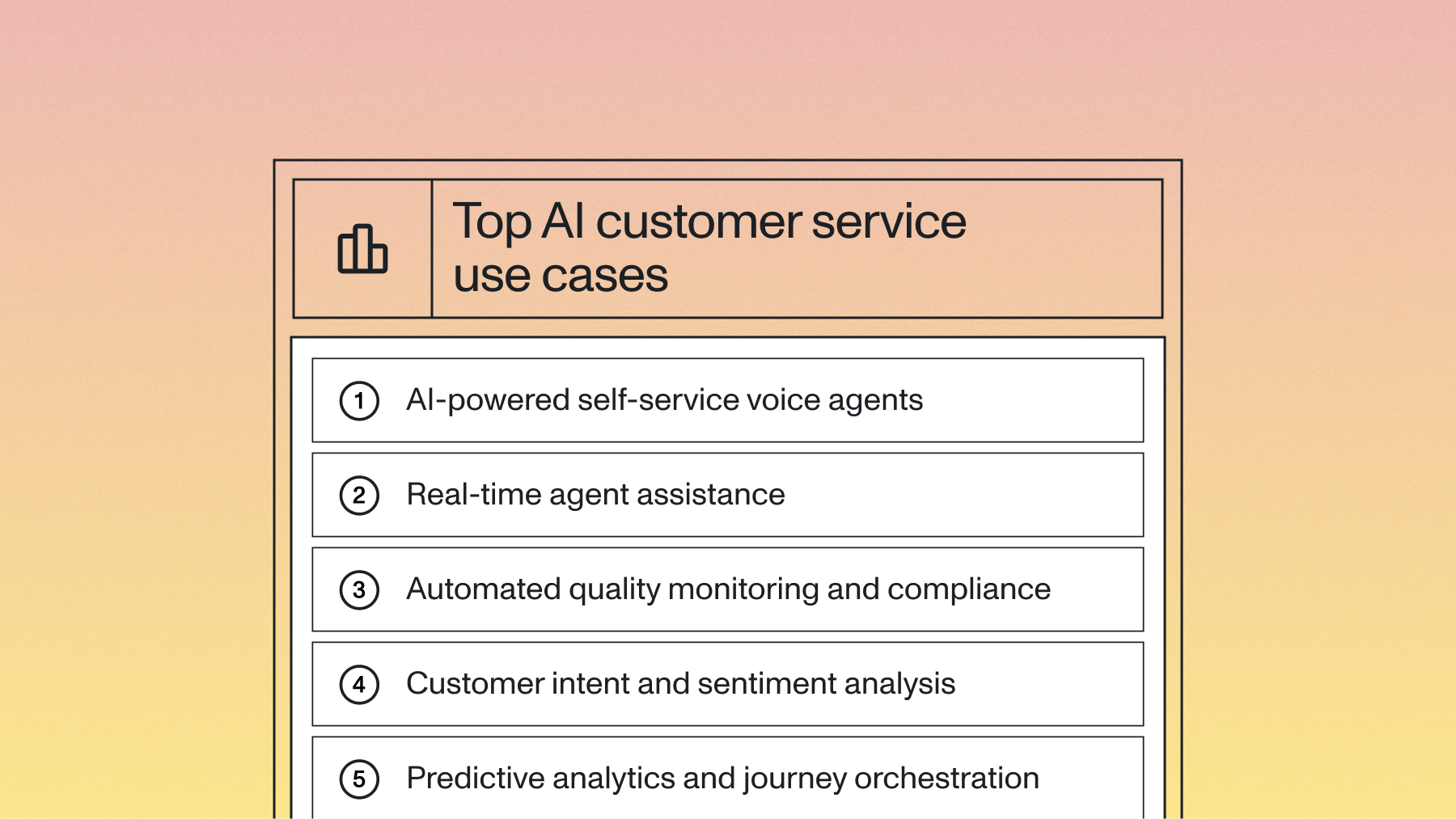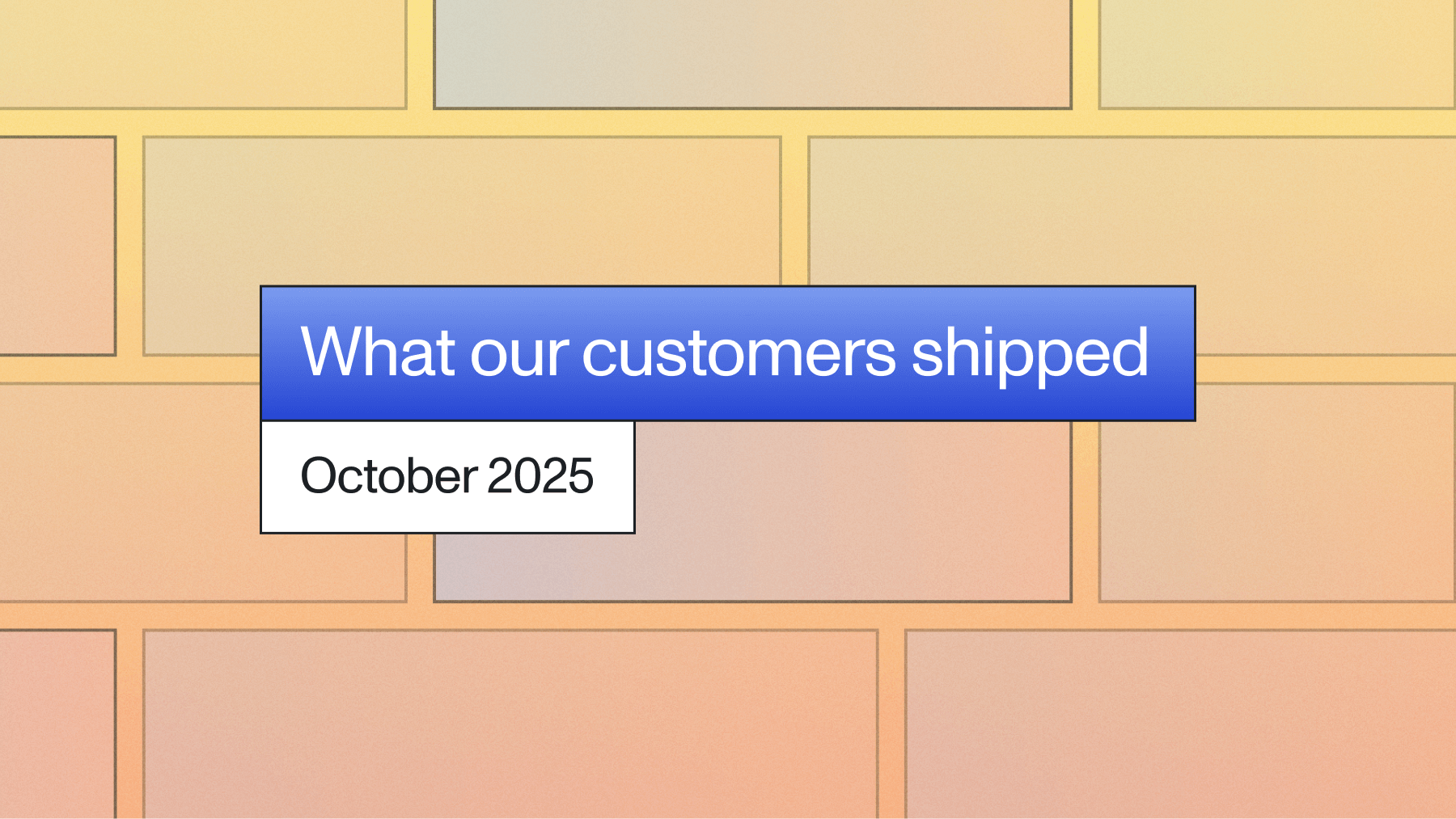What is Customer Success? The key role of technical customer success and support teams in winning and retaining customers
We interviewed Lee Vaughn, API Support Engineer Manager at AssemblyAI, to get a behind-the-scenes look at how customer success and support teams can go above and beyond to win and retain customers--and help them achieve success for their new technical AI products and solutions.



Customer success (CS) and support teams are often the unsung heroes behind a company's success, especially in technical fields like AI where the implementation is new or more nuanced. These teams don't just solve problems—they build relationships, foster loyalty, and ultimately drive continued business growth and success. And for many prospective customers, the quality of customer support can be a deciding factor when choosing a service.
Your CS and support teams are the most customer-facing aspects of your business. They can attract new users and keep them coming back, but it takes leadership know-how, support, and resources to invest in creating exceptional customer experiences. Fast, tactical support is also a key component to a company’s success in implementing a new technical product.
“The more technical the product, the more valuable good support is,” explains Lee Vaughn, API Support Engineer Manager at AssemblyAI. Vaughn gives us a behind-the-scenes look at how customer success and support teams can go above and beyond to win and retain customers—and help them achieve success for their new technical AI products and solutions. But first, let’s define what customer success is.
What is customer success?
What is customer success? A customer success team is a dedicated group focused on helping customers achieve their desired outcomes while using a product or service. These teams go beyond basic support—they are proactive in understanding and anticipating customer needs, questions, or pain points to help them achieve a successful AI implementation, launch, and continued growth.
"This involves not just understanding our product and what is on the roadmap but also understanding the customer's product, what their goals are, and what they have on their product roadmap," says Vaughn.
The true value of a customer success team lies in its ability to bridge the gap between a company's offerings and the customer's needs. This requires a perceptive understanding of both roadmaps—knowing what's coming next from the company and aligning it with the customer's future plans. Customer success teams that do this can provide targeted advice and solutions that help customers get the most out of the product.
For example, “customers often reach out to check if a particular feature or model is on our roadmap,” explains Vaughn. “They have the technical capabilities to do it, but it would save them bandwidth to instead get a solution from us.”
“If we don’t have exactly what they are looking for, we also create demos for customers showing how they can achieve this type of functionality using a combination of our API and other tools as a workaround,” he continues. “So even though we don't currently support it exactly, we still work hard to provide a solution for them.”
Often, these solutions require a strategic partnership between customer success teams and product teams, or other teams, as well. While outside of the typical scope of customer success, these partnerships go a long way in gaining customer support and prolonged satisfaction.
The role of customer support
Customer support teams provide flexible, accessible, always-on help for customers. It's about being available (anytime, anywhere) to quickly resolve issues that come up and maintain the highest level of customer satisfaction.
"Our approach to customer support is to meet the customer where they are. We offer several different options for connecting with our team," says Vaughn. For AssemblyAI, that's:
- Live chat
- Discord
- Slack channels
for 24/7 support.
For your company, it might even include things like phone, text, or forums.
It's all about making support convenient for your customers. Meet them on their channels—don't force them to adapt to yours.
Why customer success and support matter
Great customer service has become a key differentiator that can set a company apart from its competitors. When customer expectations are met (or exceeded), it fosters loyalty and turns customers into advocates for your brand. This is especially true in the tech and AI industries, where products can often be complex and require robust support systems.
"Across industries, the bar has really been lowered for what customers receive when it comes to service nowadays," says Vaughn. "They still want great service but have become resigned to the fact that they probably aren't going to get it. I think that is why customers are often surprised when our team responds on the weekend or offers to quickly jump on a call with them."
This resignation among customers creates a significant opportunity for companies that prioritize excellent service. When a business goes above and beyond to provide exceptional support, it stands out and leaves a lasting impression. When customers receive timely, knowledgeable, and empathetic support, they are more likely to stay loyal to the brand and recommend it to others.
Vaughn emphasizes, "Answering the question asked is good, but understanding why the customer asked the question or what their next question might be and incorporating that information in your response is even better." This proactive approach solves immediate issues and also anticipates future needs, further improving the customer experience.
Key differences between great and mediocre customer success teams
The distinction between a great customer success team and a mediocre one lies in their approach to customer interactions and their overall mindset toward customer service.
1. Strive to exceed customer expectations
A great CS team consistently goes above and beyond what customers expect. It's not just about answering queries—it's about anticipating the next question and providing comprehensive solutions.
For Tom Lavery, CEO and Founder of Jiminny, a leading conversation intelligence, sales coaching, and call recording platform, this high-quality relationship was key to their success in partnering with AssemblyAI to secure higher win rates for their customers.
“AssemblyAI has a real high-touch personal service. It’s a great partnership and we’re very collaborative and get to test new AI models early and work together,” said Lavery.
This proactive approach can improve the customer experience and help clients feel valued and understood.
2. Understand the context behind customer questions
CS teams need to dive deeper into the context of inquiries. Instead of offering generic solutions, great teams understand the underlying issues and tailor their responses accordingly. Understanding the broader context helps your teams provide more relevant and effective assistance. It's about genuinely helping your customers (today and tomorrow)—not just closing tickets.
3. Focus on enabling and unblocking customers
Some CS teams might see their role as simply resolving tickets and moving on. In contrast, great teams view each interaction as an opportunity to empower customers. This means providing solutions that not only fix the immediate issue but also equip customers with the knowledge and tools to prevent similar problems in the future.
"The focus should always be on enabling and unblocking the customer, helping them overcome any obstacles they might be experiencing. This could be resolving a certain issue they are experiencing, helping them better understand a certain feature, or increasing their concurrency or working with them on lower rates." says Vaughn.
This philosophy helps build customer confidence and independence, fostering a stronger, more positive relationship with the company.
How to build an effective customer success team
The foundation of any great customer support team starts with its individual members. Once you have that down, you're ready to focus on processes.
1. Find outstanding CS team members
Building a successful customer success team involves selecting individuals who possess certain key attributes. These qualities confirm that team members can effectively communicate, solve problems, and empathize with customers:
- Good written and verbal communication skills: Clear and concise communication is essential for understanding customer issues and providing accurate solutions. Effective communicators can tailor their language to the customer's level of understanding, making complex technical information accessible.
- Ability to problem solve and work through issues logically: This skill involves analyzing information, asking the right questions, and methodically working through potential solutions (even when the initial information is incomplete or unclear).
- Empathy and understanding: Empathy helps in understanding the customer's feelings and perspectives, which enhances the quality of service. Empathetic team members can acknowledge customer emotions and provide reassurance, building trust and rapport.
2. Understand the product and customer base
You need team members who are deeply knowledgeable about the product and customer base. "If your product is technical and most of the people you interact with are going to be developers, then you will want to build a team that has programming experience," says Vaughn.
This specialized knowledge allows the team to provide more insightful support and helps in addressing specific issues that customers may face.
Knowing who your customers are, what their goals are, and what challenges they face allows the CS team to tailor their support to meet those needs. Vaughn adds, "Understanding your product and your customers is the foundation of a great support team." This knowledge guarantees the team can anticipate and address customer needs effectively.
3. Optimize processes to reduce friction
"The easier it is for customers to get in contact with your team, the faster you can work to resolve their issues," says Vaughn. Here are some tips to achieve this:
- Multiple communication channels: Offer various ways for customers to reach out, such as live chat, email, phone support, and social media. This flexibility guarantees that customers can choose the most convenient method for them.
- Efficient ticketing system: Implement a robust ticketing system that prioritizes and tracks customer inquiries so that no issue goes unresolved.
- Automated responses and self help resources: Use automated responses to acknowledge customer inquiries immediately. Provide comprehensive self-help resources, such as FAQs, docs, and knowledge bases, to empower customers to find solutions on their own.
- Continuous training: Regularly train the CS team on new features, common issues, and customer feedback. This keeps the team updated and ready to handle a wide range of queries.
- Feedback loop: Establish a feedback loop between the CS team and other departments, such as product development, docs, and marketing. This helps funnel customer insights to improve the product and overall customer experience.
Investing in customer success
Customer success and support teams play a pivotal role in both acquiring and retaining customers. Their efforts go beyond mere problem-solving—they build relationships, foster trust, and drive customer satisfaction. Companies that invest in understanding their customers' needs and proactively assisting them will always stand out.
Take a moment to evaluate your own customer success and support teams. Are they meeting the standards outlined here? Consider what changes or improvements you could make to satisfy and delight your customers. A strong CS team isn't just a support system—it's a strategic asset in driving your business forward.
Lorem ipsum dolor sit amet, consectetur adipiscing elit, sed do eiusmod tempor incididunt ut labore et dolore magna aliqua. Ut enim ad minim veniam, quis nostrud exercitation ullamco laboris nisi ut aliquip ex ea commodo consequat. Duis aute irure dolor in reprehenderit in voluptate velit esse cillum dolore eu fugiat nulla pariatur.





